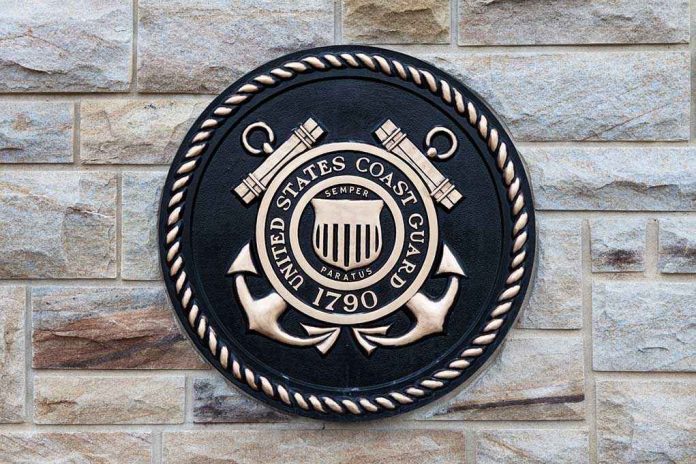
President Trump’s groundbreaking nomination of Admiral Kevin Lunday, a cyber operations expert, to lead the Coast Guard marks the first time digital warfare expertise has become the primary qualification for America’s maritime defense leadership.
Story Highlights
- First cyber expert nominated as Coast Guard Commandant in service history
- Part of Force Design 2028 initiative to modernize homeland security operations
- Secretary Noem announces 25% reduction in flag officer positions
- Major leadership overhaul signals Trump administration’s defense priorities
Historic Cyber Leadership Appointment
Admiral Kevin Lunday’s nomination represents a strategic shift in Coast Guard leadership philosophy, prioritizing digital warfare capabilities over traditional maritime operations experience. Secretary of Homeland Security Kristi Noem announced the selection during the Coast Guard Academy’s 2025 commencement ceremony, emphasizing Lunday’s proven expertise in cyber operations. This appointment reflects the Trump administration’s recognition that America’s maritime infrastructure faces unprecedented digital threats requiring specialized leadership at the highest levels.
Force Design 2028 Drives Structural Reform
The nomination aligns with the administration’s comprehensive Force Design 2028 initiative, which aims to modernize and streamline Coast Guard operations for future security challenges. Secretary Noem has announced a dramatic 25% reduction in flag officer positions by next year, demonstrating the administration’s commitment to eliminating bureaucratic bloat. The restructuring includes disapproval of the 2025 rear admiral promotion board, signaling a complete realignment of leadership priorities under conservative management principles.
New flag officer assignments include Admiral Thomas Allan, Vice Admiral Nathan Moore, Vice Admiral Jo-Ann Burdian, Vice Admiral Joseph Buzzella, and Vice Admiral Douglas Schofield in reorganized leadership roles. These appointments represent a carefully orchestrated transition toward operational efficiency and cyber-focused defense capabilities. The streamlined command structure eliminates redundant positions while strengthening critical cybersecurity functions essential for protecting American maritime interests.
Strategic Response to Digital Threats
The appointment addresses escalating cyber threats targeting U.S. maritime infrastructure and critical supply chain operations that previous administrations largely ignored. Lunday’s cyber expertise positions the Coast Guard to defend against sophisticated digital attacks on ports, shipping networks, and coastal facilities. This proactive approach contrasts sharply with past reactive policies that left American maritime assets vulnerable to foreign interference and cyberattacks.
Maritime cybersecurity experts recognize this nomination as overdue recognition of digital warfare’s critical importance to homeland security. The selection demonstrates the Trump administration’s understanding that traditional maritime leadership models cannot adequately address modern threats requiring specialized technical knowledge. Conservative defense analysts praise the decision as evidence of pragmatic leadership prioritizing national security over political correctness in military appointments.
Sources:
AWO Letter May 22, 2025 – American Waterways Operators
Air & Space Forces Magazine Daily Report – October 28, 2025
U.S. Coast Guard Official News – Force Design 2028 Announcement





